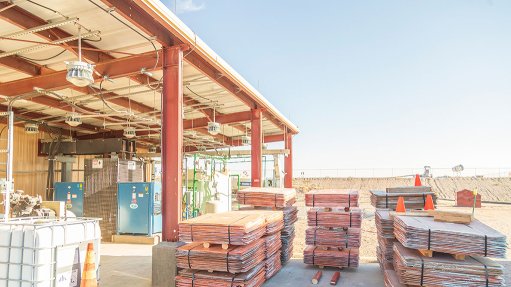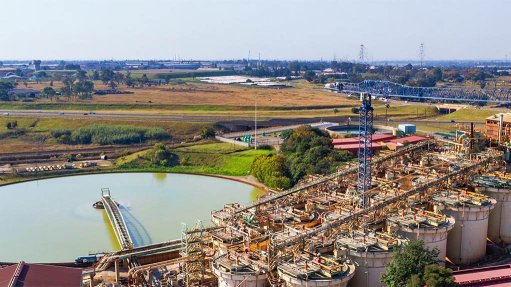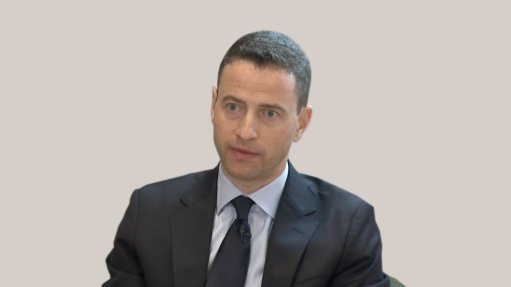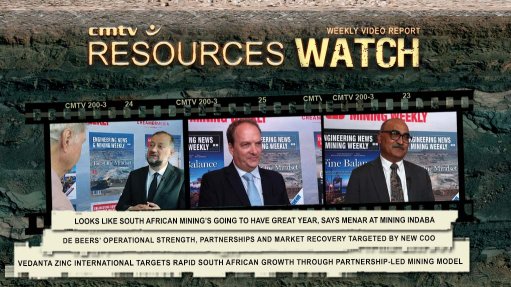Master Blaster CEO takes issue with Frost & Sullivan findings on explosives

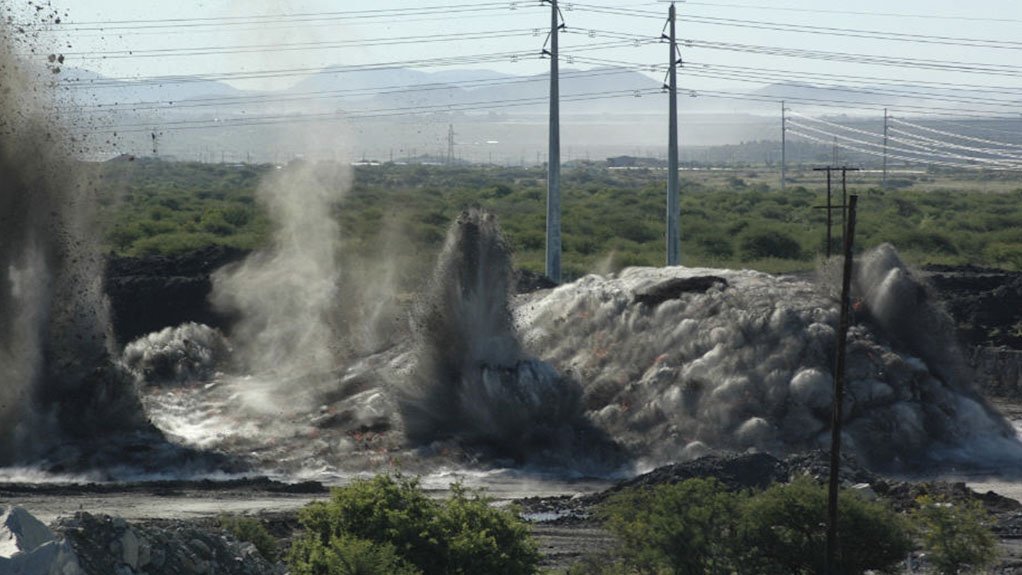

ARGUMENT FOR EXPLOSIVES Steady technological advances in the mining industry were reducing mining costs, improving blasting efficiencies and driving explosives sales
MARK DAVIS Current explosive products are doing the opposite of what the underground narrow reef mines need in terms of efficiency, safety and environmental sustainability
The findings of a recent report by market research company Frost & Sullivan, entitled ‘The Mining Explosives Market in South Africa for Coal, Iron Ore, Gold and PGMs, Forecast to 2020’, are technically and factually incorrect, contends blasting solutions provider Master Blaster CEO Mark Davis.
In March, Mining Weekly published the findings of the report in which Frost & Sullivan visionary science senior industry analyst Carolyn Krynauw said that steady technological advances in the mining industry were reducing mining costs, improving blasting efficiencies and driving explosives sales, thereby boosting growth in the South African mining explosives market.
The report stated that technological advances would promote a world of zero emissions, zero accidents, zero fatalities, zero defects and zero breaches of security. Krynauw also contended that the innovation drive was creating opportunities for explosives manufacturers to produce products (such as bulk emulsions) suitable for deep-level mining that would further improve precision blasting, while remaining in line with mining companies’ cost containment strategies.
However, Davis comments that the explosives products mentioned in the report have been in use for over 35 years and are “not innovative in any respect” and by no means “improve precision blasting”.
Further, he believes that, if anything, these products are doing quite the opposite of what the underground narrow reef mines need in terms of efficiency, safety and environmental sustainability.
Davis contends that these products do nothing to promote a world of zero emissions, considering the large volume of waste ammonium nitrate fuel oil (Anfo) washed into drains polluting the water supply system, or their “total inability” to contribute to the mining industry’s dream of achieving zero fatalities given their direct influence on fall-of-ground incidents caused by overcharging.
He points out that these explosives are “virtually impossible to control” during the loading process underground and “undoubtedly” result in serious safety, health and environmental issues.
Davis says that what is needed on the mines are less explosives per hole, which will preserve grades, stope support and the integrity of the hanging wall, as well as reduce risks during transport operations by transporting less explosives.
He avers that is would be more efficient and easy to use explosives systems that are available, but the traditional explosives suppliers would not endorse this as this would mean “sacrificing millions of rands in lost sales” and opening up competition for products and systems that they currently do not offer, or which, if they were to do so, would see competitors’ ability to supply the products in question limiting their share of the market.
Davis states that the report provides “ample evidence” to explain why the explosives companies want to preserve the current status quo.
He quotes Krynauw: “In the short term, ageing mines, limited greenfield developments and decreasing ore grades of commodities like gold imply that more rock needs to be processed to sustain or increase commodity production. This will benefit the explosives market and raise volume sales.”
Davis, moreover, emphasises that the approach of the South African underground mining industry towards safety, the health of their workers and efficiencies “remains an enigma”.
He says that the mining hierarchy continually declare their commitment to the principles of zero harm, innovation and the wellbeing of the environment, yet wilfully refuse to entertain any meaningful changes to the current products and systems used on the mines, even though there are proven, safer alternatives available.
Davis comments that the mining industry’s “obdurate preference” for traditional explosives suppliers with nothing “new” to offer is self-contradictory. “He mentions that, in the face of increased input costs, militant labour, environmental concerns, intrusive government regulation, the threat of costly Section 54 work stoppage notices for noncompliance and a myriad of other problems, nothing seems to change at mining operations themselves.
“If one considers the mining industry’s vociferous commitment to ensuring zero harm and innovation and, at the same time, the ongoing resistance by the underground mining industry to new explosives regulations promulgated by the Department of Mineral Resources, the absurdity of the situation is obvious,” Davis concludes.
Article Enquiry
Email Article
Save Article
Feedback
To advertise email advertising@creamermedia.co.za or click here
Press Office
Announcements
What's On
Subscribe to improve your user experience...
Option 1 (equivalent of R125 a month):
Receive a weekly copy of Creamer Media's Engineering News & Mining Weekly magazine
(print copy for those in South Africa and e-magazine for those outside of South Africa)
Receive daily email newsletters
Access to full search results
Access archive of magazine back copies
Access to Projects in Progress
Access to ONE Research Report of your choice in PDF format
Option 2 (equivalent of R375 a month):
All benefits from Option 1
PLUS
Access to Creamer Media's Research Channel Africa for ALL Research Reports, in PDF format, on various industrial and mining sectors
including Electricity; Water; Energy Transition; Hydrogen; Roads, Rail and Ports; Coal; Gold; Platinum; Battery Metals; etc.
Already a subscriber?
Forgotten your password?
Receive weekly copy of Creamer Media's Engineering News & Mining Weekly magazine (print copy for those in South Africa and e-magazine for those outside of South Africa)
➕
Recieve daily email newsletters
➕
Access to full search results
➕
Access archive of magazine back copies
➕
Access to Projects in Progress
➕
Access to ONE Research Report of your choice in PDF format
RESEARCH CHANNEL AFRICA
R4500 (equivalent of R375 a month)
SUBSCRIBEAll benefits from Option 1
➕
Access to Creamer Media's Research Channel Africa for ALL Research Reports on various industrial and mining sectors, in PDF format, including on:
Electricity
➕
Water
➕
Energy Transition
➕
Hydrogen
➕
Roads, Rail and Ports
➕
Coal
➕
Gold
➕
Platinum
➕
Battery Metals
➕
etc.
Receive all benefits from Option 1 or Option 2 delivered to numerous people at your company
➕
Multiple User names and Passwords for simultaneous log-ins
➕
Intranet integration access to all in your organisation













